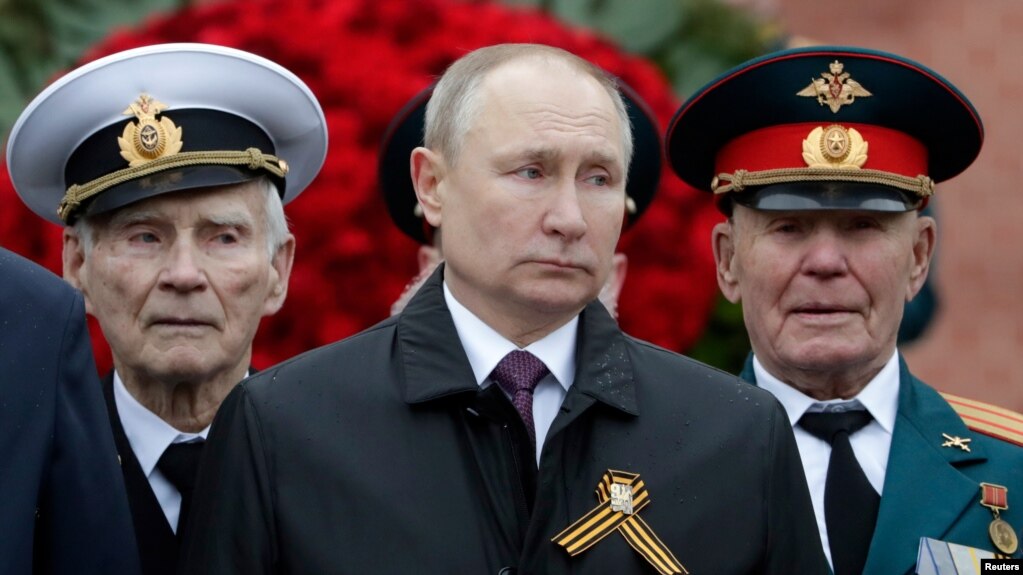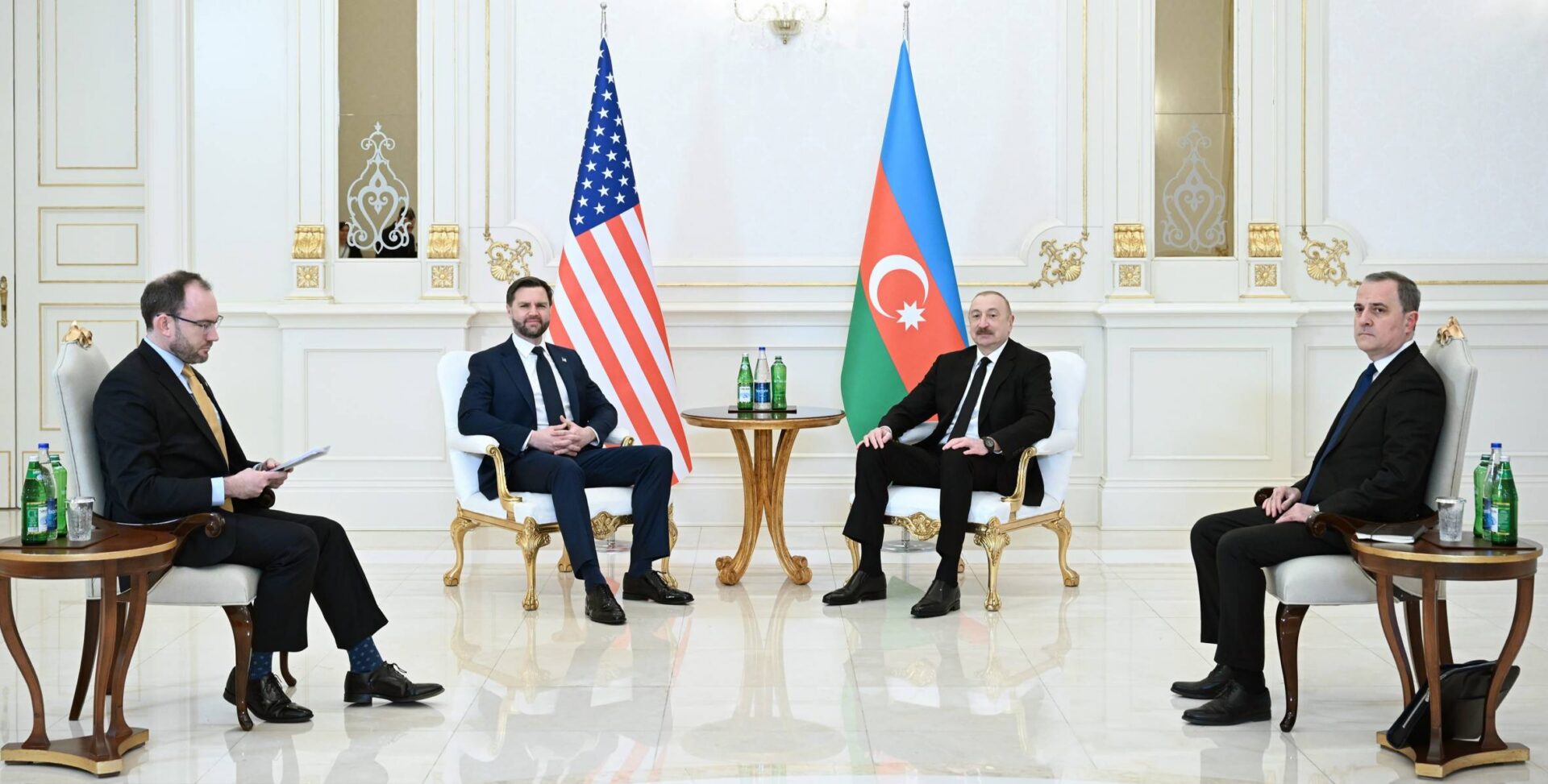
The Kremlin’s Narratives for Its War Against Ukraine
The Kremlin’s Narratives for Its War Against Ukraine
Since February 2022, the Kremlin has been trying to clearly present the purpose and thinking behind its all-out aggression against Ukraine. The Russian authorities’ narratives began with President Vladimir Putin’s declarations of “denazification” and “demilitarization” of Ukraine together with punishment for Kyiv’s “decommunization.” However, this messaging did not resonate with a majority of Russians and could not be used as effective explanations for Russia’s terrible losses during this long war. As a result, attempts were made by high-ranking officials of the Russian Security Council, including Dmitry Medvedev and Alexei Pavlov, to present Moscow’s re-invasion as a “holy war” against Satan (i.e., Ukraine and the West)—though Pavlov was dismissed from his position immediately following his comments (Aif.ru, October 25, 2022; Fontanka.ru, November 4, 2022; RBC, January 20; see EDM, January 30).
Nevertheless, the basic Russian narratives for the war was formulated by Putin as early as 2020–2021. To begin with, during an interview in 2020, Putin advanced the thesis of a divided Russian nation based on Russian ethnicity and not on civic background. In this way, the Russian president argued that Russians and Ukrainians belong to one nation (TASS, February 21, 2020). Lately, he has confirmed and extended this thesis, adding that modern Ukraine poses an alternative to the Russian political-economic system—the so-called “anti-Russia” approach—which is totally unacceptable to the Kremlin. Briefly speaking, Putin presented the view that Ukraine must either become united with Russia or be eliminated as a threat to it. Ukrainian territory was even characterized as historical Russian territory that had been wrongfully wrested away from Russia (Kremlin.ru, July 12, 2021).
The overall problem is that these views do not solely come from Putin’s own thoughts, considering the fact that the official document containing these narratives was created by a number of authors, including at least one professor of history from Moscow State University, and was edited by the Presidential Executive Office. Therefore, it is clear that the “denial of Ukraine” narrative was a widespread concept among the Russian political and intellectual elite, even before the war (Kremlin.ru, July 12, 2021).
Furthermore, it is quite likely that these sentiments were also widespread in Russian society. This mass ethnic resentment was fueled by objective trends that were visible but misinterpreted by the Russian people. For example, the number of ethnic Russians in Russia decreased from 111 million of 143 million in 2010 to 105.6 million of 147.1 million, including those who live in occupied Crimea, in 2021 (see EDM, January 10; Rosstat.gov.ru, accessed February 2). And this demographic suffered from almost a decade of economic stagnation as well as significant decreases in wages without any hope for a better future within the current political-economic circumstances (RBC, January 28, 2021; Nezavisimaya gazeta, October 20, 2021; December 4, 2022). In this way, denial of the existence of a distinct ethnic identity and civic society in Ukraine, with growing income opportunities and better political and economic prospects, became a matter of consensus between the Kremlin and a significant part of the Russian population.
Another major part of Moscow’s war narrative is a radical form of long-term anti-Western and anti–North Atlantic Treaty Organization resentment, which traces its roots back to the 1990s. However, during the previous decades, this resentment rationalized the specific reforms for increasing authoritarianism within Russia as well as the addition of evermore non-market elements within domestic economic policy. Now, this narrative highlights the foreign radicalism of the Russian state, with the purpose of destroying the existing global order and exacting revenge on the West for the Soviet Union’s collapse—even as Russia’s troubles and failures on the battlefield continue to multiply.
Moreover, Russian propagandists are trying to place the war against Ukraine, with all its failures and missteps, within a centuries-long historical context. For instance, according to Kremlin propaganda, the current war against Ukraine was not only inherited from World War II (or the “Great Patriotic War” in the Soviet/Russian historical tradition). Indeed, this message has already become just as commonplace for Moscow’s propagandists and their audience as for the Russian political elite themselves (RBC, February 2, 2023). In truth, the current war is also being presented as the “Third Patriotic War” after the war against Napoleon in 1812 (the Patriotic War of 1812) and the Great Patriotic War of 1941–1945 (Rutube.ru, October 2022).
It is hard to determine whether this thesis resonates within Russian society, but it does demonstrate the direction of the Kremlin’s thinking. Ultimately, the Russian leadership is trying to frame the war against Ukraine as a people’s war. The goal here is to give the Kremlin more room for maneuver in conducting much tougher policy against those people who do not support the war, sharing responsibility for the growing number of war crimes with the Russian people and approving further decreases in wages as well as other painful economic policies. Additionally, the Kremlin’s war narratives aim to justify Russia’s increasing level of self-isolation, which will be needed to preserve the authoritarian regime in Moscow from collapse in the case of a complete defeat on the battlefield in Ukraine.


